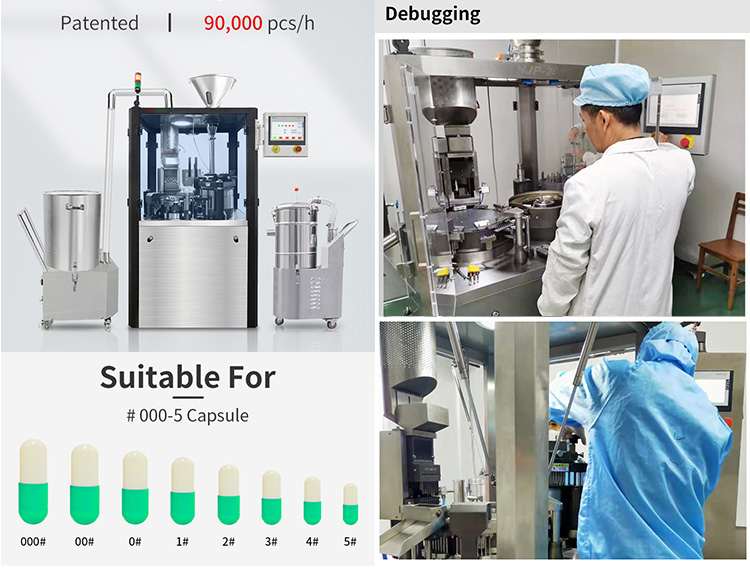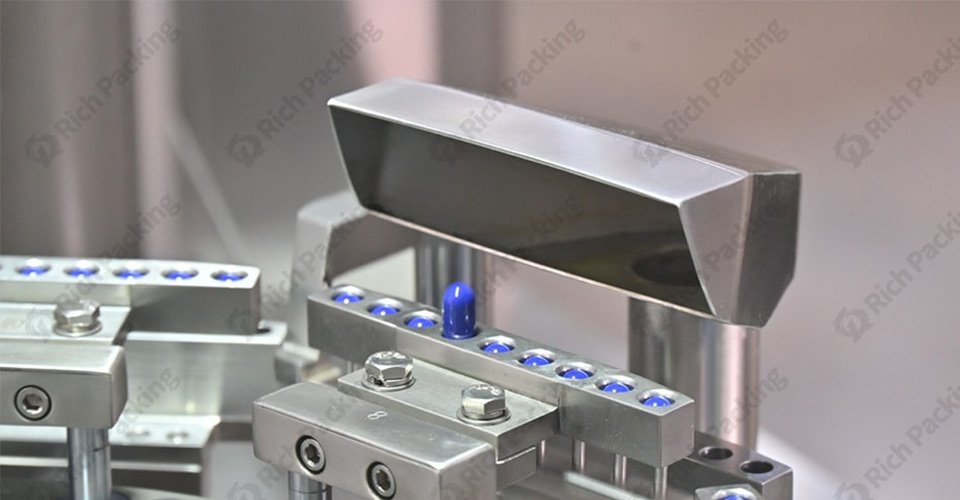Categories
New Blog
Tags
Capsule filling machines are marvels of pharmaceutical engineering, enabling high-speed, precise encapsulation of powders, granules, or liquids. Among their many critical components, the waste rejection and capsule lock stations play pivotal roles in ensuring product quality and operational efficiency. Understanding how these stations function and their importance will give you a deeper appreciation of the technology behind modern capsule production. This article will guide you through their roles, benefits, and how they maintain quality and safety in the capsule manufacturing process.

The waste rejection station is an integral part of any capsule filling machine. It acts as the quality control checkpoint, ensuring that defective capsules do not proceed to the next stages of production.
- Identification of Defective Capsules:
The machine uses sensors, cameras, or mechanical systems to detect capsules that do not meet quality standards. Common defects include:
- Improperly filled capsules.
- Capsules with broken or cracked shells.
- Capsules with uneven or inadequate locking.
- Rejection Mechanism:
Defective capsules are identified and automatically separated from the production line using air jets, mechanical arms, or vacuum suction.

- Enhanced Quality Control:
By removing defective capsules, this station ensures that only high-quality products reach the packaging stage.
- Cost Efficiency:
Reducing the risk of rejected batches or customer complaints saves time and resources in the long term.
- Regulatory Compliance:
Ensures adherence to strict pharmaceutical industry standards, safeguarding your reputation and avoiding regulatory penalties.
The capsule lock station is where the capsule cap and body are securely joined to create a complete, intact capsule. This process is critical for maintaining the structural integrity of the capsules and ensuring proper dosing.
- Capsule Assembly:
After the capsule body is filled, the lock station aligns the cap with the body. Precision mechanisms ensure accurate alignment and smooth operation.
- Sealing the Capsule:
The machine applies controlled pressure to lock the cap onto the body. This prevents leakage and ensures the capsule remains intact during handling and consumption.
- Product Safety:
Properly locked capsules protect the contents from environmental factors like moisture, air, and contaminants.
- Dose Accuracy:
Ensures that the intended dose remains intact until consumed, maintaining efficacy and reliability.
- Operational Efficiency:
Reduces the likelihood of capsule breakage during packaging, transportation, and storage, minimizing waste and production delays.
These two stations work in tandem to create a seamless capsule production process:
- The capsule lock station ensures every capsule is securely closed.
- The waste rejection station identifies and removes any improperly locked or defective capsules.
This synergy maintains high production standards and ensures customer satisfaction with consistent, defect-free products.
Despite their efficiency, waste rejection and capsule lock stations can face challenges. Here are common issues and their solutions:
|
Challenge |
Cause |
Solution |
|
Frequent Capsule Rejections |
Incorrect filling or shell defects |
Calibrate the filling mechanism and inspect capsule quality. |
|
Misaligned Caps and Bodies |
Mechanical misalignment |
Regular maintenance of alignment systems. |
|
Inefficient Rejection System |
Faulty sensors or blocked mechanisms |
Clean and inspect sensors regularly; replace faulty parts. |
To keep the waste rejection and capsule lock stations functioning efficiently, regular maintenance is essential:
- Check for blockages in the waste rejection system.
- Ensure sensors and mechanical components are clean and operational.
- Regularly calibrate the alignment and locking mechanisms for accurate capsule assembly.
- Test the rejection system using sample defective capsules.
ion and Cleaning
- Lubricate moving parts to prevent wear and tear.
- Clean the stations thoroughly to avoid residue build-up that can impact performance.
Modern capsule filling machines integrate advanced technologies to improve the efficiency and accuracy of these stations:
Smart Sensors and AI
- Use of AI-powered sensors to detect defects with higher precision.
- Automated learning systems that adapt to varying capsule conditions for enhanced quality control.
- Faster rejection and locking systems to match high production speeds without compromising quality.
- Integration with manufacturing execution systems (MES) for real-time monitoring and analysis of capsule quality.
Whether you’re managing a pharmaceutical production facility or exploring capsule filling for the first time, the waste rejection and capsule lock stations are critical to your operation’s success. Their ability to ensure quality and efficiency directly impacts:
- Consumer Safety: Eliminating defective capsules reduces risks for consumers.
- Operational Costs: Efficient systems minimize waste and downtime.
- Market Reputation: Consistent quality enhances brand trust and regulatory compliance.
The waste rejection and capsule lock stations are vital components of capsule filling machines, ensuring quality and safety in every capsule produced. By removing defective capsules and securely locking the cap and body, these stations help you achieve operational excellence and meet the high standards of the pharmaceutical industry. Investing in their maintenance and leveraging advanced technologies will ensure that your production line remains efficient, reliable, and capable of delivering top-quality products to the market.